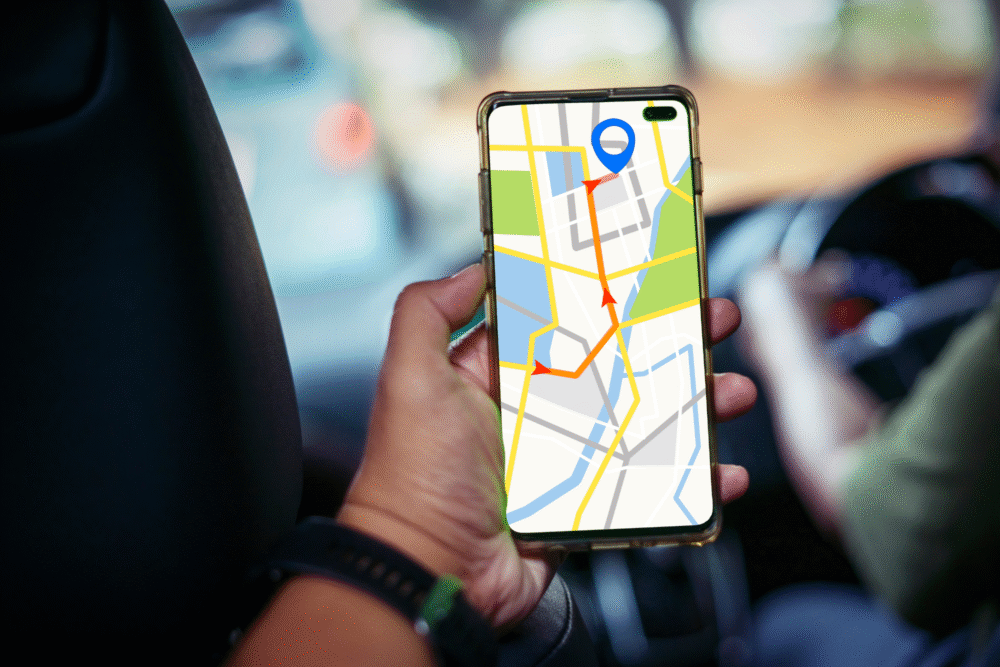They’re outsourcing memory and decision-making without realizing the cost.

Gen Z has grown up with a device in hand, surrounded by a sea of apps, tools, and platforms designed to make life easier. Everything from remembering birthdays to solving math problems can now be outsourced to technology. It’s convenient, efficient, and undeniably powerful. But in the rush to offload mental tasks, something more subtle is happening—a slow erosion of the ability to think critically, recall information, and solve problems independently.
This isn’t about blaming smartphones or acting like the past was perfect. It’s about noticing how deeply we rely on tech to do the heavy lifting for our brains. When you don’t need to remember directions, dates, or even how to spell a word, your brain stops trying. And when the habit of Googling everything replaces thoughtful reflection, a generation risks losing the ability to process ideas without external input. Cognitive offloading isn’t inherently bad—but when it becomes default instead of occasional, it dulls the very tools we need to thrive in a complex world. Gen Z might be tech-savvy, but that savviness comes at a cost no one’s talking about loud enough.
1. They don’t memorize basic information anymore.

There was a time when knowing phone numbers, addresses, and even family birthdays was considered normal. Now, that information lives in phones or the cloud, not in anyone’s actual brain. Gen Z rarely commits these basics to memory because there’s no perceived need. Everything is searchable or stored automatically, which makes memorization feel pointless, according to Jonas von Essen at Memory OS.
But this shift has consequences. Relying entirely on devices to recall even the simplest things means that mental recall becomes a skill that atrophies over time. The brain doesn’t get those daily workouts it needs to stay sharp. When something unexpected happens—like losing access to your phone or battery failure—it becomes clear just how dependent we’ve become. Memory isn’t just a trivia trick; it’s part of mental agility, and Gen Z is losing that edge without even noticing.
2. They use search engines as a substitute for comprehension.

Gen Z can find an answer to almost anything in seconds. The problem is, they often don’t retain what they find. Instead of processing information or thinking critically about a topic, they skim a headline, grab the answer, and move on, as reported by the experts at Asana. It’s fast, but it doesn’t build true understanding.
Over time, this creates a false sense of mastery. Being able to locate facts quickly isn’t the same as knowing them. Without the deeper cognitive engagement that comes from struggling through a problem or making sense of complex ideas, Gen Z risks becoming dependent on external validation for what they think they know. Quick answers feel satisfying, but they don’t lay the groundwork for deeper insight. That’s a slow brain drain, masked by the illusion of intelligence.
3. They default to GPS for navigation—even nearby.

Ask someone under 25 to get to a familiar place without GPS and watch the panic set in. Gen Z has never had to memorize routes or read a map. They plug in the address and follow the blue line without ever really understanding where they are in space. It’s convenient, but it erodes spatial awareness and confidence in personal direction, as stated by Laura Hudgens at Bored Teachers.
This passive dependence dulls a critical form of mental processing. When you aren’t forming a mental map of your environment, you don’t learn to problem-solve when something goes wrong. You’re just a passenger, not a navigator. That kind of thinking spills into other areas of life, too. Gen Z might know how to get somewhere, but they rarely know why that route works—or how to improvise when it doesn’t.
4. They avoid mental math at all costs.

Calculators are everywhere, even embedded in their phones. As a result, Gen Z has been trained to avoid doing math in their heads—even basic addition or tip calculations. That muscle has grown weak, and many don’t trust themselves to even estimate without double-checking on a device.
The danger here isn’t about being bad at math—it’s about weakening confidence in independent thinking. Doing quick calculations sharpens logic and keeps your brain nimble. When that gets offloaded to a screen every single time, it’s not just arithmetic that suffers. The broader skill of holding multiple pieces of information in your head, working through steps mentally, and drawing conclusions on your own starts to fade. That’s a huge cost for something so small.
5. They rely on reminders for everything.

Daily tasks, appointments, hydration goals, medication, even brushing teeth—there’s a reminder for that. Gen Z is more organized than ever thanks to technology, but it’s come at the cost of developing internal cues and habits. They’ve become conditioned to wait for a ding or notification before acting.
This means that self-regulation is weakening. They’re less likely to develop internal discipline or rely on their memory to manage life. When reminders fail—when the phone dies or an app crashes—entire systems collapse. The brain doesn’t practice keeping track of tasks or routines, so when it’s needed, it struggles. The digital brain becomes the real one, and that dependency grows more invisible every year.
6. They use AI to generate thoughts before thinking their own.

Writing tools, idea generators, and summarizers are just a few clicks away. Gen Z has started turning to these tools to draft emails, brainstorm content, or even form opinions on books they haven’t read. While these tools are useful, overuse means they’re bypassing the mental labor of forming their own thoughts.
When you let an algorithm do the heavy lifting, you lose the chance to clarify what you actually believe or understand. It’s a quiet, creeping loss of cognitive independence. Thinking is a skill, and like any skill, it weakens with disuse. When Gen Z starts outsourcing their own opinions before fully forming them, it’s not just a shortcut—it’s an erosion of self-awareness and original thought.
7. They expect instant answers and struggle with uncertainty.

Cognitive offloading has created a mental culture of impatience. Gen Z is so used to getting immediate answers that they rarely sit with ambiguity. They want the result now—preferably in bullet points. Waiting for clarification or slowly building knowledge feels frustrating and outdated.
This impatience makes it harder to tolerate complexity, nuance, or long-term processes. If something isn’t immediately solvable, it’s dismissed or ignored. That’s a dangerous habit in a world filled with problems that don’t have quick solutions. Gen Z is losing the mental resilience required to sit in the gray areas of life, to think through hard questions without rushing to a conclusion.
8. They outsource opinions through online consensus.

Instead of forming beliefs based on personal experience, observation, or discussion, Gen Z often checks the comment section or subreddit to see what’s acceptable to think. They scan for popular takes and mimic the consensus, confusing trend with truth. This short-circuits the process of reflection and makes their thought process vulnerable to groupthink.
Cognitive offloading here means letting someone else do the moral, political, or social reasoning. If the crowd approves, it’s safe to follow. This discourages critical thought and reinforces echo chambers. Thinking is no longer about grappling with ideas—it’s about checking what others already decided and aligning with that to avoid friction.
9. They can’t sit still without distraction.

Boredom used to be a breeding ground for creativity. Now, it’s an emergency to be solved with entertainment. Gen Z pulls out their phones at red lights, in line, and during every lull in conversation. Their brains are conditioned to avoid stillness, filling every pause with stimulus.
This kind of offloading replaces daydreaming and reflection with scrolling and noise. The ability to sit with one’s thoughts, process emotions, or generate original ideas gets drowned in the constant hum of content. The cost isn’t just lost time—it’s lost thinking. A mind that’s never quiet is a mind that forgets how to wander, wonder, and arrive at something entirely new.
10. They confuse data collection with learning.

Saving an article, bookmarking a post, or watching a tutorial feels productive. But Gen Z often confuses accumulating resources with actually learning the content. They stack tabs, collect tips, and screenshot inspiration, but rarely go back to digest any of it.
This creates an illusion of growth while leaving the brain largely unchanged. Real learning requires engagement, repetition, and struggle. Skimming a headline doesn’t teach. Saving a link doesn’t transform behavior. Cognitive offloading makes it feel like learning is happening, but without deliberate practice and reflection, it’s just digital hoarding. And when the mind fills up on trivia, it starts starving for wisdom.
